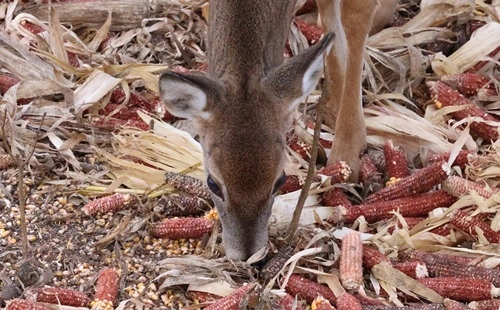Yes, in many states, it is illegal to bait deer, while in others it is allowed under specific regulations. Baiting deer refers to placing food, minerals, or other attractants to lure deer for hunting purposes. Laws governing deer baiting vary widely across the United States and often depend on factors like disease prevention, wildlife conservation, and hunting ethics.
Understanding Deer Baiting Laws
1. State-Specific Regulations
- Some states have a complete ban on deer baiting, while others allow it under certain conditions or in specific regions. For instance:
- Michigan prohibits baiting deer in most areas to prevent the spread of chronic wasting disease (CWD).
- Texas permits baiting on private land, but hunters must adhere to specific guidelines.
- Florida allows baiting except in wildlife management areas.
- States like Wisconsin have restrictions based on county-level CWD cases.
2. Disease Prevention
- One of the primary reasons for banning deer baiting is to prevent the spread of diseases like CWD and bovine tuberculosis. Concentrated feeding areas created by baiting can facilitate disease transmission among deer populations.
3. Hunting Ethics
- Some wildlife agencies and hunters argue that baiting undermines fair chase principles, as it artificially manipulates deer behavior, making them easier targets.
4. Wildlife Conservation Concerns
- Baiting can disrupt natural foraging patterns, increase dependency on human-provided food, and alter deer migration and behavior, negatively impacting ecosystems.
Penalties for Illegal Deer Baiting
1. Fines and Fees
- Penalties for illegal baiting can range from $50 to $1,000, depending on the state and severity of the violation.
- For example, in Georgia, baiting in prohibited areas can result in fines and the confiscation of hunting equipment.
2. Hunting License Suspension
Violating baiting laws can lead to the suspension or revocation of hunting licenses, particularly for repeat offenders.
3. Civil and Criminal Charges
In extreme cases, illegal baiting may result in civil or criminal charges, especially if it leads to the spread of diseases or endangers other wildlife.
How Baiting Laws Are Enforced
1. Game Wardens and Wildlife Officers
State wildlife agencies employ game wardens to patrol hunting areas, monitor baiting activities, and enforce regulations.
2. Use of Technology
Officers may use drones, cameras, or satellite imagery to detect baiting violations in remote or private areas.
3. Public Reporting
Hunters and residents are encouraged to report suspected illegal baiting to local wildlife agencies.
Alternatives to Baiting Deer
1. Food Plots
- Planting natural food plots, such as clover, alfalfa, or corn, is a legal and ethical alternative to baiting in many states. Food plots provide sustainable nutrition for wildlife and support ecosystems.
2. Scouting and Tracking
- Ethical hunting practices prioritize traditional scouting and tracking techniques, allowing hunters to locate deer based on natural movements and habitats.
3. Supplemental Feeding (Where Legal)
- In some states, supplemental feeding is allowed outside hunting season to support deer populations during harsh winters. However, this practice is often subject to strict guidelines.
Related FAQs
Q1. What is the difference between baiting and feeding deer?
Ans: Baiting refers to placing food to attract deer for hunting, while feeding is generally done to support wildlife outside of hunting activities. Both practices are regulated differently in each state.
Q2. Can I bait deer on private property?
Ans: It depends on state laws. Some states allow baiting on private land, while others enforce statewide bans regardless of property ownership.
Q3. What types of bait are commonly used for deer?
Ans: Common bait includes corn, apples, salt licks, and mineral blocks. These are often regulated, and their use may be prohibited during hunting seasons.
Q4. Why is baiting deer considered unethical by some hunters?
Ans: Critics argue that baiting compromises the principles of fair chase by artificially influencing deer behavior and making them easier targets.
Q5. Are there exceptions to deer baiting bans?
Ans: Some states provide exemptions for specific circumstances, such as research, wildlife management, or certain regions with low disease risk.
Conclusion
Baiting deer is illegal in many states due to concerns about disease transmission, ethical hunting practices, and wildlife conservation. Hunters must understand and comply with state and local regulations to avoid penalties and support sustainable hunting practices. Alternatives like planting food plots or traditional tracking methods offer ethical ways to engage in deer hunting without violating baiting laws.

